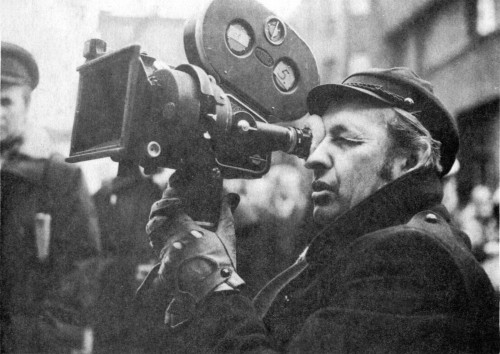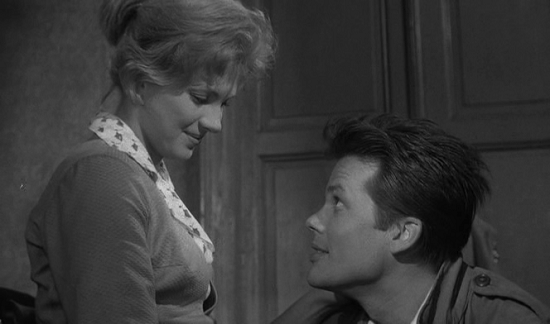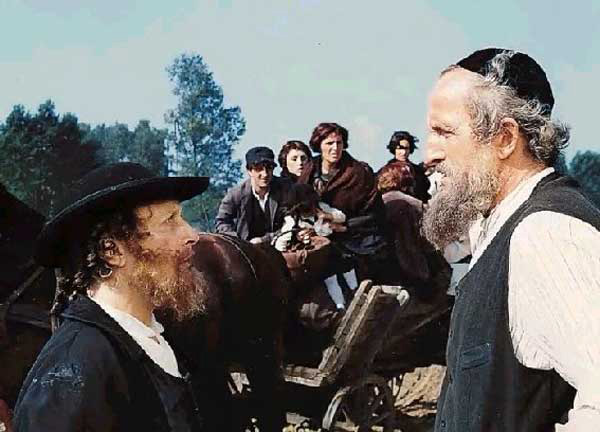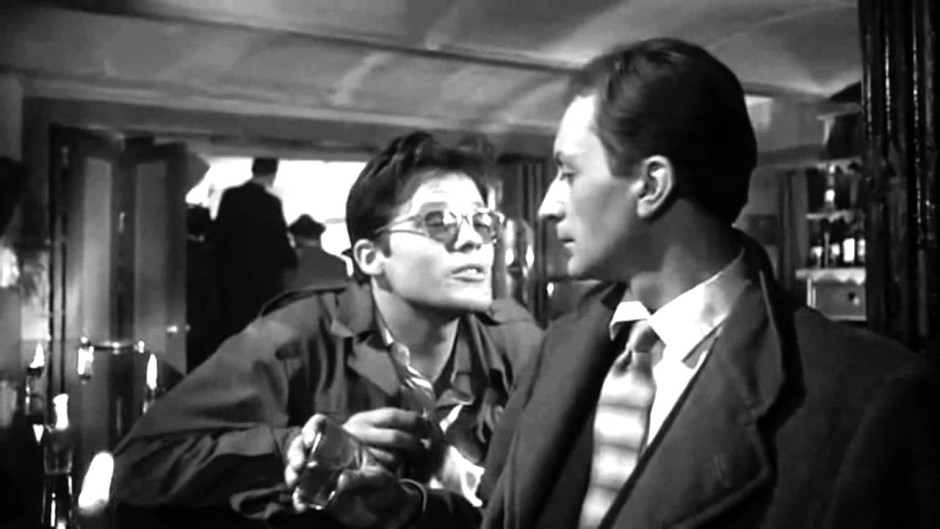Years ago, when I was a postgraduate student in Britain, I saw Andrzej Wajda’s classic movie, Ashes and Diamonds, and was bowled over by it. It left a powerful impression and became one of my all-time favourites films. Last week, I had the pleasure of watching it yet again, and I was just as impressed.
Ashes and Diamonds, I’m pleased to report, will be included in a retrospective of digitally restored Polish films to be screened by the Toronto International Film Festival. Martin Scorsese Presents: Masterpieces of Polish Cinema will run at the TIFF Bell Lightbox from June 5 to July 1.

In addition to Ashes and Diamonds, viewers will have an opportunity to watch Wajda classics like The Wedding and The Promised Land, as well as films by such craftsmen as Aleksander Ford (Knights of the Black Cross), Krzysztof Zanussi (Illumination) and Krzysztof Kieslowski (Blind Chance).
More than 50 years after it took audiences and critics by storm, Ashes and Diamonds, shot in stark black and white in film noir style, is still widely considered to be the gold standard of the Polish film industry.
It will be screened on Sunday, June 8 at 4 p.m.
Set on May 8, 1945, the day World War II in Europe ended, it’s about the struggle for Poland’s future. Soviet-backed communist forces are poised to take over the country, but conservative nationalists aligned with the Home Army are fighting back to restore the status quo ante.
Ashes and Diamonds opens as a jeep approaches a turn in the road and assassins armed with machine guns open fire, killing its two occupants in cold blood. Maciek (Zbigniew Cybulski), one of the killers, is pleased with his performance, as is Andrzej (Adam Pawlikowski), his superior.
Maciek and Andrzej check into a hotel in an unnamed provincial town for a bit of rest before their return to Warsaw. As they nurse their drinks at the bar, Maciek flirts with the attractive blonde server, Krystyna (Ewa Krzyzewska), who’s amused by his none too subtle overtures.

The atmosphere in the bar is dim and smoky, and in keeping with this mood, Maciek wears tinted glasses. Cybulski, whom critics hailed as Poland’s James Dean, exudes a kind of cool and unflappable self-assurance usually associated with much older men who’ve been there and done that. And indeed, Maciek fits that description, having participated in the ill-fated 1944 uprising in Warsaw that the Germans crushed ruthlessly. Not surprisingly, there are several references to the “rising” in the film.
As Maciek talks up Krystyna, whom Krzyzewska portrays in world-weary fashion, Andrzej receives an alarming call from his boss, the “major,” who informs him that the wrong people — two innocent workers from a cement factory — were assassinated. They should have killed Szczuka (Waclaw Zastrzezynski), the local communist leader who has just returned from exile in the Soviet Union, and is now staying at the same hotel.
Andrzej orders Maciek to kill Szczuka, and he agrees to finish the job. Ironically, Maciek and he pass each other several times in the lobby. In one instance, Maciek courteously lights his cigarette.

As Maciek revs himself up for the assignment, romance intrudes. Much to his surprise, Krystyna knocks on his door. As they talk, Krystyna informs him that her father was interred in the Dachau concentration camp. Poland suffered greatly in the war, and this fleeting allusion to Dachau is a nod to the human tragedy that unfolded on Polish soil during the German occupation. Politics dissolves into love-making, but it takes place off-screen.
Wajda throws in a little comic relief through the ramblings of an intoxicated journalist, but soon enough, the lovers are back again. Speaking for her war-scarred generation, Krystyna says she wants more than just “memories.” She desires a real life, but is Maciek capable of giving her one?
Maciek, too, longs for normality. In an unguarded moment, he admits that love has passed him by, at least until now. In these two characters, Wajda finds a template for a broken and disunited nation weary of war, upheaval and uncertainty and eager for tranquility and stability.
Ashes and Diamonds is a movie of uncommon power, thanks in no small part to Cybulski,who turns in a memorable performance as a young Polish fighter who has seen too much too soon and yearns for peace and quiet at long last.
***
Jerzy Kawalerowicz’s Austeria pays homage to a vanished Jewish community in Poland. In the very first scene, Hassidic Jews pray and chant in a synagogue, exuding exoticism and reminding us of the pre-war era when Hassidism was a major force in Polish Judaism.

It unfolds on the first day of World War I as Hassidic refugees flee the hostilities on horse-drawn carts. Dressed, as usual, in traditional garb, they stop for refreshments at a Jewish-owned inn. Later, they ford a river en route to a safe haven.
Austeria revolves around Tag, an Orthodox Jewish innkeeper whose Jewish and Christian guests form something of a Noah’s Ark. Warned that antisemitic Cossacks are coming, Tag refuses to leave.
There are a number of intricate sub-plots, and they are staged with lavish attention to detail.
Full programme details at http://tiff.net/cinematheque/masterpieces-of-polish-cinema
